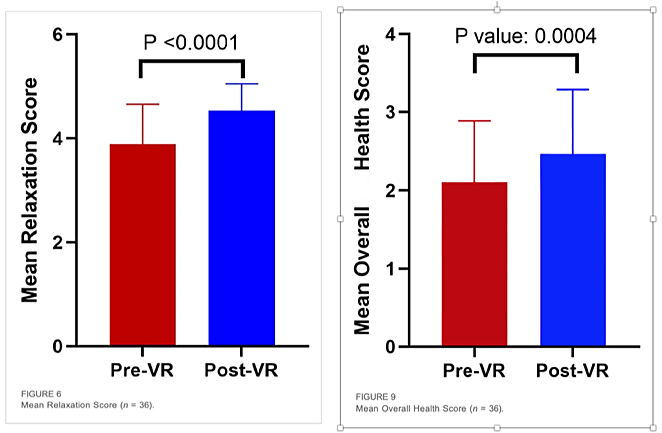A study, recently published in Frontiers in Virtual Reality, has unveiled the potential of VR therapy in reducing anxiety and fatigue among cancer patients.
VR Meditation Decreased Anxiety, Stress
In an experiment, researchers at the Immunotherapy Center (ITC) assigned participants randomly to either a VR meditation group or a control group. The VR meditation group received 10-minute VR meditation sessions twice a week for four weeks, while the control group did not receive any VR meditation sessions.
The results of the study were striking. The VR meditation group reported significantly lower levels of anxiety, stress, and fatigue compared to the control group. Moreover, their sense of well-being was notably higher.
Dr. Carlos Bautista, the founder and Chief Medical Officer of the ITC, emphasized the significance of these findings:
“This study provides strong evidence that VR meditation can be an effective way to reduce cancer-related anxiety, stress and fatigue. VR meditation is a safe and easy-to-use intervention that can be performed in a clinical setting or at home.”
10-Minute VR App
The study utilized a virtual reality meditation app called PNI Thrive, a 10-minute VR meditation app featuring guided sessions designed to help users relax, reduce stress, and improve their overall well-being. These findings indicate that virtual reality meditation holds promise as a valuable addition to the treatment of cancer-related anxiety, stress, and fatigue.PNI Therapeutics, a pioneer in the development of digital products, software, and medicines for improving the standard of care for chronic diseases, collaborates with hospitals, clinics, and VR developers to implement VR-based therapeutic programs aimed at alleviating patient anxiety, stress, and pain. Their mission revolves around enhancing drug efficacy, accelerating recovery, reducing mortality, and lowering the cost of standard care cancer treatments through virtual reality.

